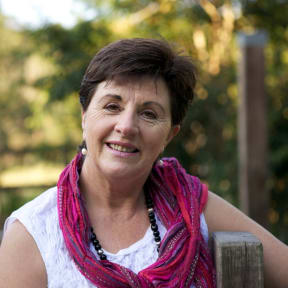Teenage boys have it particularly hard, says Australian parenting expert Maggie Dent, so we need to help them understand their specific brain-based challenges and consistently show love.

Photo: Matese Fields / Unsplash
Maggie Dent is a former high school teacher, counsellor, mother of four sons, grandmother of seven, author of numerous books and the host of the ABC podcast Parental as Anything. Her website has further parenting tips.
Maggie Dent will give a seminar on this topic in Wellington on 26 August.
The tendency to make impulsive, risky choices is a key feature of the young male brain, Dent tells Kathryn Ryan, especially one that's development has been further slowed by too much time online and motionless.
"They build up energy in their nervous system and it doesn't take much for that to come out in explosive or crazy ways, which is a response to their body trying to survive the moment."
Teenage boys need to be cut some slack for less than stellar decision-making, she says, because they don't have the same capacity as teenage girls to think things through and contemplate and strategise.
"So many times we see them as deliberately, and impulsively, making poor choices and they often regret it deeply afterwards, especially if they've hurt someone they like or damaged something in a room with people they like."
Adolescent boys can also be extremely self-critical about their own behaviour, Dent says.
''I think we've got to have a lot more compassion because they tend to feel stupid, dumb and then they attack themselves and their self-worth plummets… and they get angry."
Disengagement from school is very common when teen boys decide it's not a place where they can succeed, she says.
"Their self-worth comes from 'what can I do well?', so as soon as schoolwork gets a bit harder and they're not sure they're going to be able to do it well… they do everything to sabotage themselves. They procrastinate, they don't turn up, they pretend they've forgotten about it. How do we keep our boys engaged in a space where they've decided it won't make them look good [when they're asking themselves] 'what's in it for me?'"

Australian parenting coach, writer and podcaster Maggie Dent Photo: Supplied
The most important parents and caregivers can do is help inform boys about the invisible changes happening within their brains.
It's difficult for anyone to create and implement new ways of responding or reacting so most teens need help from adults to achieve this via things like reminding them to take a breath when they feel themselves triggered.
"They need really safe grown-ups so they're able to go 'let me work out another way of dealing with this'.
"If they have one adult that gets them even when they muck up, it can change the whole trajectory of that boy's life.'
When a teen boy has done something wrong, talk with them about how they can make it right and how they could respond or act differently.
"[Say something like 'The choice that you made has done some harm and you need to accept that that is not okay.
"We have to let them see that the choice that they made isn't a good choice, and what choice could you make next time? It takes a while but we've got to help them work out that you don't just keep doing a bad choice because you haven't got any idea what to do next. We have to help them problem-solve to think 'what could I do next time? If I want to get the attention of my mate on the other side of the classroom I won't throw a book at him. What else can I do? We've got to help them."
The best way for parents to do this, Dent says, is to be consistently loving.
"Kindness… oh man, it's the most powerful tool you have for a boy who's struggling."

